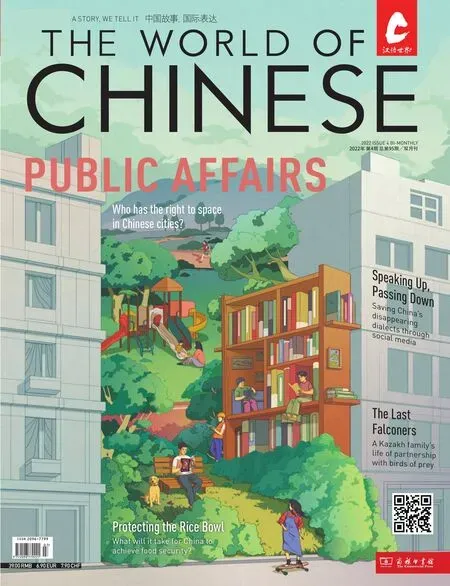Editor's Letter
As Covid outbreaks across multiple cities shut down indoor entertainment venues,this summer might be remembered as a time when China rediscovered street life—in Beijing and Shanghai especially,crowds of picnickers and frisbee players beside public roads and rivers gave these spruced-up metropolises an atmosphere of hubbub not seen in years,helping many locals develop a new sense of connection to their cities.
But the pandemic has brought to fore the pressing lack of public spaces in the country:that is,places that are truly open for anyone to share,whenever and however they wish to use them.From a traditionally lineage-and acquaintancebased society,and the 20th century’s networks of shared political ideology and class identity,China is now evolving a “public” consciousness and building more spaces to accommodate it.But even as the country tries to construct more urban parks,remove fences and ticketing around existing recreation areas,and encourage the “roadside economy,” there remains debate at all levels of society about openness versus chaos and public safety,and how much one is willing to sacrifice any of these things for the other.
In the indoor realm,various public libraries in China have become pioneers in showing how to create a space truly welcoming for people of all backgrounds,but their scarcity and lack of resources make it challenging for them to serve as many people as they’d like.And if public spaces for humans are hard to come by,millions of pet owners are still struggling against cultural prejudices and unclear rules to find places that will accept their four-legged friends as well as themselves.
We explore all of these topics in our cover story,while this issue’s features delve into two different yet equally fascinating areas:China’s efforts to make its food supplies self-sufficient in the 21st century,against forces like climate change and a depopulated countryside;and whether the rise of social media content in dialects (fangyan) can help China’s hundreds of regional speech varieties survive in the modern day.We experience the falconry culture of the Kazakh people in a touching first-person tale;look at how translated Chinese literature has evolved over the last 20 years via award-winning translator Nicky Harman;dive into the cutting-edge work of a rising crypto-artist;and more.


